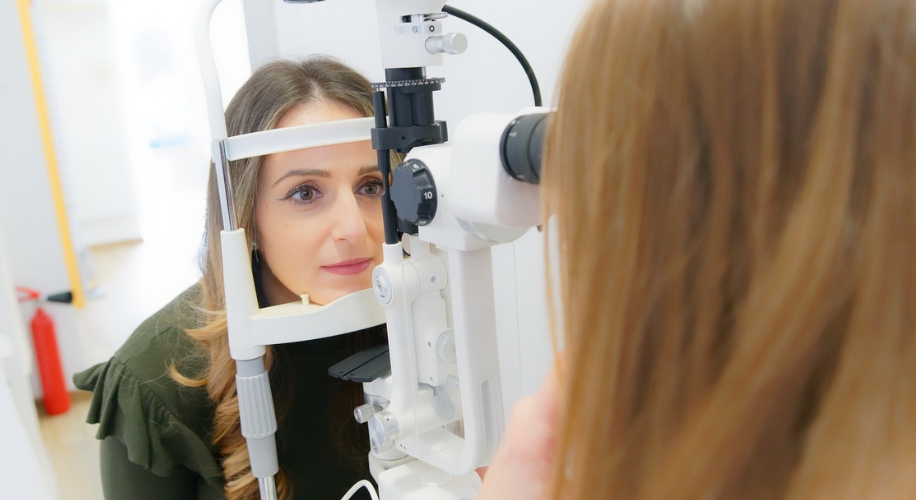Optometrists and Your Eye Health
- BY Dr. Steven Liem
- IN Eye Health

Photo by Paul Diaconu
When it comes to maintaining healthy vision and addressing various eye conditions, optometrists play a crucial role. In this blog post, we’ll delve into their responsibilities and expertise, shedding light on their significance in eye care.
What is an Optometrist?
An optometrist is a primary healthcare professional who specializes in examining, diagnosing, treating, and managing disorders and diseases of the visual system. They are trained to provide comprehensive eye care services, including prescribing corrective lenses, detecting eye abnormalities, and offering guidance on maintaining optimal eye health.
Education and Training
Optometrists undergo extensive education and training to become qualified practitioners. Typically, they complete a Doctor of Optometry (OD) degree from an accredited optometry school, which involves rigorous coursework and clinical rotations. Additionally, they may pursue specialized training in areas such as pediatric optometry, ocular disease, or low vision rehabilitation.
Comprehensive Eye Examinations
Optometrists are trained to conduct comprehensive eye examinations that encompass various aspects of ocular health. From assessing visual acuity to diagnosing refractive errors like myopia, hyperopia, and astigmatism, optometrists employ a range of techniques and technologies to evaluate the overall health of the eyes.
Detection and Management of Eye Conditions
One of the primary responsibilities of optometrists is the early detection and management of eye conditions. Through thorough examinations, they can identify issues such as glaucoma, cataracts, diabetic retinopathy, and macular degeneration. Early detection is key to preventing vision loss and preserving ocular health.
Prescription of Corrective Lenses
Optometrists are also skilled in prescribing corrective lenses to address refractive errors and improve visual clarity. Whether it’s glasses or contact lenses, they tailor prescriptions to meet the unique needs and preferences of each patient, ensuring optimal visual correction and comfort.
Treatment of Eye Diseases
In addition to routine eye care, optometrists are equipped to diagnose and treat various eye infections and diseases. From conjunctivitis to more serious conditions like uveitis or keratitis, they provide timely intervention and management to alleviate symptoms and prevent complications.
Collaborative Care and Referrals
Optometrists work closely with other healthcare professionals, including ophthalmologists and primary care physicians, to ensure comprehensive and coordinated care for their patients. When necessary, they make referrals to specialists for further evaluation and treatment, prioritizing the best interests of their patients’ overall health.
Shop These Zenni Frames
The Importance of Eye Exams
Regular eye exams are essential for maintaining healthy vision and detecting potential eye problems early on. Whether you’re just updating your glasses or getting a check-up on your eye health, scheduling an annual appointment with your optometrist can help you see clearly for years to come.



